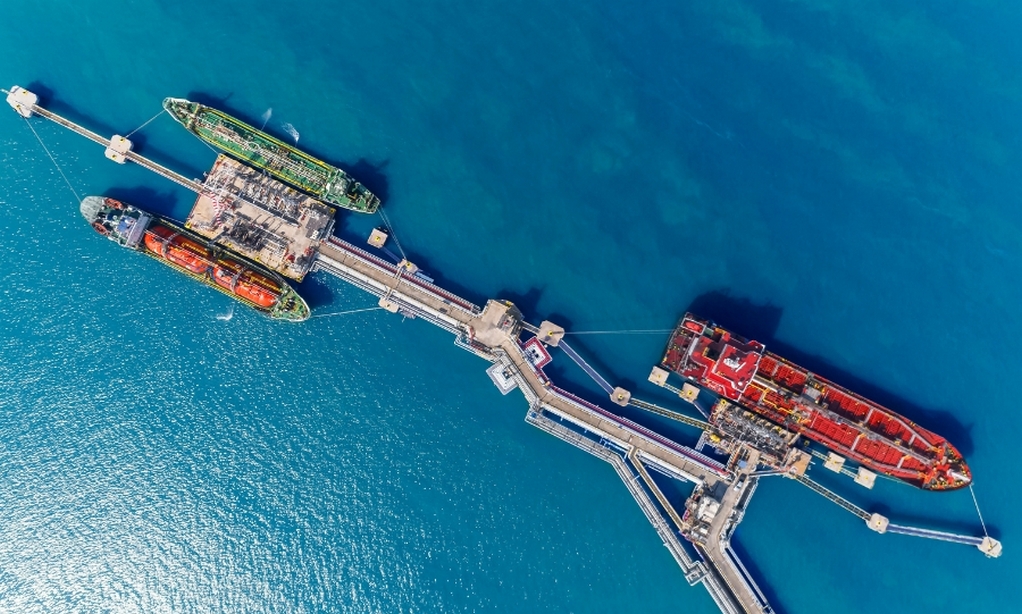Singapore’s Kenoil Marine Services will begin testing biobutanol blends with its current engines later this year, using biofuel produced from a pilot production plant its partner had invested in, its director said in an interview with S&P Global Commodity Insights.
The pilot plant – located in Johor, Malaysia – is expected to deliver its first biobutanol this month, produced from empty fruit bunch, a biomass waste sourced from its plantation partner IOI group.
This comes as Kenoil’s green energy solutions partner Ken Energy had inked an agreement with Singapore startup Green COP to produce up to B50 biofuel blends commercially by 2026, as part of an industrial alliance led by Kuok Maritime Group.
In December last year, Kenoil Marine Services had carried out its first ship-to-ship bunker delivery of B24 bio-blended low sulfur marine gasoil in Singapore, adding that there is growing momentum towards biofuels.
Biobutanol is less hygroscopic and has a longer shelf life compared to ethanol and methanol, which makes it more suitable as a drop-in marine fuel, according to Green COP’s CEO Hanson Lee, who was also present at the interview.
Although producing biobutanol is typically more energy-intensive compared with other alternative fuels, Lee’s team holds a patent for their butanol production process, which reduces the energy required by around 90% compared with commercial processes that typically involve steam explosion or heavy acid, he said, adding that this also lowers production costs.
Moreover, Green COP’s technology does not limit its feedstock to a single type of plant-based waste, he added, which could help with lower cost in the long run as well.
FAME, or Fatty Acid Methyl Ester, refers to biodiesel derived from renewable sources, while UCOME, or Used Cooking Oil Methyl Ester, refers to biodiesel derived from processed used cooking oil.
Platts, part of S&P Global Commodity Insights, assessed the price for UCOME FOB Straits (Singapore and Malaysia) at $1,090/mt, in line with lower indicative value and below an offer at $1,100/mt on May 3.
Green COP and Ken Energy will look to set up at least one commercially operational plant in Southeast Asia by 2026, which will be separate from its current 4mt/month pilot biobutanol facility in Malaysia’s Johor Bahru.
The scaling up of their production capabilities will be aided by an up to $10 million (US$ 7.36 million) investment from the Coastal Sustainability Alliance led by Kuok Maritime Group.
In the meantime, Green COP and Ken Energy are also looking to get their ISCC certification and complete a lifecycle emission assessment this year, they added.
This comes as all new harbor crafts operating in the world’s largest bunkering port will have to be fully electric and capable of using B100 biofuel, or be compatible with net-zero fuels such as hydrogen by 2030.
Tags: Biobutanol, Fuel, Kenoil, Marine



Recent Posts
Scandlines Nears Delivery of Zero Emissions Ferry Following Successful Sea Trials
India faces emission roadblocks with rising net-zero demands
Green Energy Resources invests in two electric Liebherr LHM 550
NYK Launches Continuous Use of Bio LNG Fuel on Car Carriers to Advance Decarbonization Goals
Yang Ming Expands Fleet with Methanol and LNG Dual-Fuel Vessels Under Fleet Optimization Plan
ClassNK Advocates Speed Gap Monitoring to Optimize Fuel Efficiency in Heavy Weather
Wärtsilä’s retrofit package for the Corsica Linea ferry Pascal Paoli has resulted in fuel savings of up to 22 percent Corsica Linea
COSCO Shipping Names Second Methanol Dual-Fuel Containership in Yangzhou